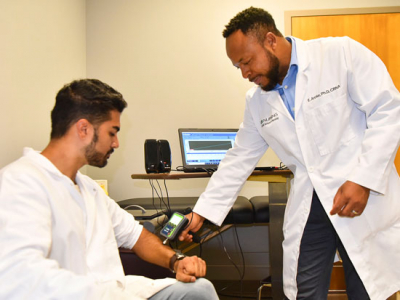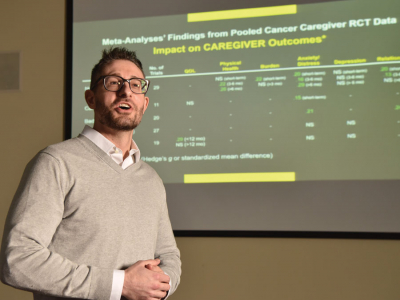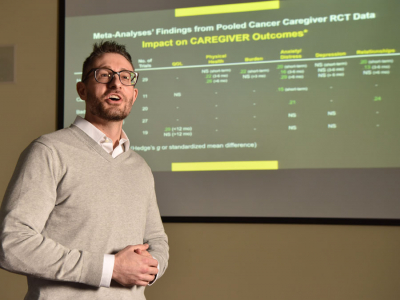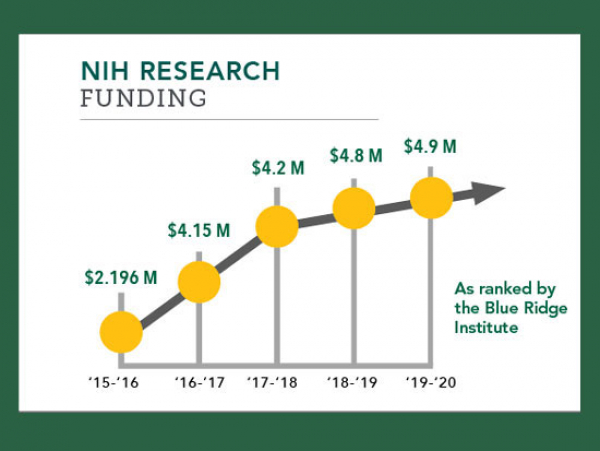 UAB researchers are investigating computer-based speed-of-processing training as a way to help aging patients with HIV boost cognitive performance.
UAB researchers are investigating computer-based speed-of-processing training as a way to help aging patients with HIV boost cognitive performance.
Twenty years ago, a patient with HIV was most likely going to die from complications of AIDS. Today, many patients can expect to live a relatively normal lifespan, but emerging statistics show that they are at a higher risk for developing many chronic conditions.
In many ways, this is good news, notes Michael Saag, M.D., director of UAB’s Center for AIDS Research (CFAR). “In the 1980s, people died before they had a chance to get sick with anything else,” Saag says. “Today, most patients don’t die of AIDS, but we’re finding that an HIV-infected person who is successfully treated with anti-HIV drugs is more likely to have a range of problems than people of the same age who don’t have HIV infections.”
Heart attacks, diabetes, early onset dementia, and cancer “are all happening sooner and more frequently in people with HIV, even when they’re on successful treatment,” Saag says. “The big question is why, and right now we don’t really know the answer. But a lot of our effort over the next decade will focus on this problem.”
Several CFAR investigators have taken up the challenge. David Vance, Ph.D., a researcher in the UAB School of Nursing with a background in developmental psychology, has published several studies examining the cognitive effects of aging with HIV. He is now testing potential therapies.
“By 2015, 50 percent of those with HIV in the United States will be 50 or older,” Vance says. “HIV is becoming an older person’s disease.”
Long-term studies show that “most people with HIV will experience at least some cognitive deficits, and many people will experience serious cognitive deficits,” Vance says. While the exact reasons are still being teased out, it is clear that both HIV and the medicines used to fight it are responsible.
Even though the immune system can’t remove HIV on its own, the presence of the virus provokes a continual inflammatory battle; the friendly fire has an especially negative effect on brain cells. Drugs to treat HIV also provoke inflammation, and many antiretroviral drugs send cholesterol levels in the body soaring. They have also been linked to metabolic syndrome and hypertension. Scientists think that drug effects contribute to rapid aging. “The medications that are keeping people alive are having more consequences as they age,” Vance says. Many of these negative effects can be reduced with care, Vance points out. “The research shows that everything that helps to manage normal successful aging also helps those aging with HIV—exercising, eating right, maintaining a good attitude,” he says. “It’s just that people with HIV need to focus a little more strenuously on these things.”
New research by Vance and fellow investigators in UAB’s Roybal Center for Research on Applied Gerontology has pinpointed another brain booster: computer-based speed-of-processing training. UAB researchers have already shown that training can increase the speed of processing in the brains of senior adults. Researchers have focused on a measure called useful field of view (UFOV), which tracks how well someone can respond to objects outside the direct line of sight. “As people age, their UFOV shrinks,” Vance says. “That’s really bad news for driving.” But UAB research shows computerized UFOV training “can bring improvements after just 10 sessions, and the effects last for years,” Vance says. And the training appears to be just as effective in aging adults with HIV.
But it doesn’t take specialized training to buffer the brain, Vance notes. “The more you’re involved in life, the more your brain is engaged,” he notes. “That seems to prevent some of these long-term cognitive losses.”


























































































































